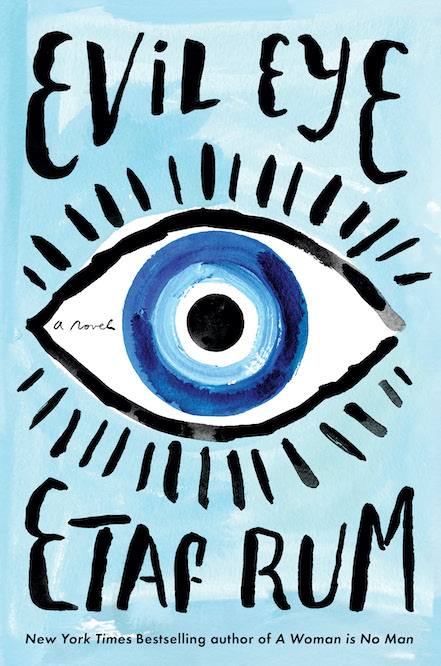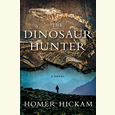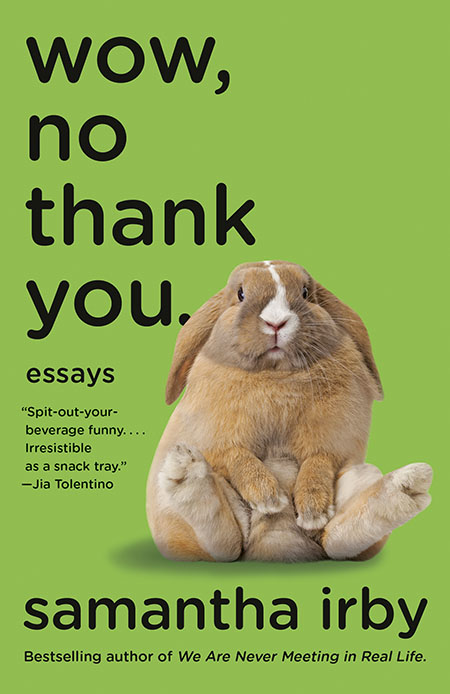A World Beyond
Alan Lightman considers the origins of spirituality in The Transcendent Brain
“Some experiences are simply not reducible to zeros and ones,” Alan Lightman writes in the introduction to The Transcendent Brain: Spirituality in the Age of Science. That truth inspires the question at the heart of this new book and much of his other writing in recent years, from the 2009 narrative poem Song of Two Worlds to 2018’s Searching for Stars on an Island in Maine, as well as his recent PBS series called Searching: Our Quest for Meaning in the Age of Science: How do we reconcile the principles of science and rational inquiry with our powerful sense that there’s something unknowable, unquantifiable at the core of human existence?
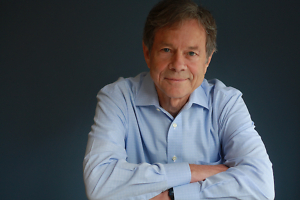
A physicist and the author of seven novels including the 1992 classic Einstein’s Dreams, Lightman describes himself as a “spiritual materialist” who does not believe in any supernatural divinity but has a deep respect for the varieties of spiritual experience. He takes care to set himself apart from the kind of dogmatic atheist who dismisses religion as delusional or primitive. “Science and religion/spirituality are the two most powerful forces that have shaped human civilization,” he writes. “Neither is going away. Both are part of being human.”
He has shared a number of his own transcendent experiences in vivid detail over the years, including a mystical encounter with two juvenile ospreys and a visionary merging with the night sky while alone on a small boat off the coast of Maine. In The Transcendent Brain, he recalls an incident in his boyhood bedroom in Memphis:
For a brief few moments, I had the sensation of seeing my entire life, and indeed the life of the entire planet, as a brief flicker in a great chasm of time, with an infinite span of time before my existence and an infinite span of time afterward. …. And I felt that everything I had experienced in my young life, the joy and the sadness, and everything that I would later experience meant absolutely nothing in the grand scheme of things. It was a realization both liberating and terrifying at once.
Such moments of liberation and terror — which are, if not universal, at least very common to human beings the world over — present an irresistible challenge to both the scientist and the literary artist in Lightman. While the artist seemed to hold sway in Searching for Stars on an Island in Maine, offering readers a mostly meditative ramble around the intersection of the rational and the spiritual, The Transcendent Brain is more of a scientist’s focused inquiry into the physical basis of our mystical experiences and our “deep longing for a world beyond, a world of perfection.”
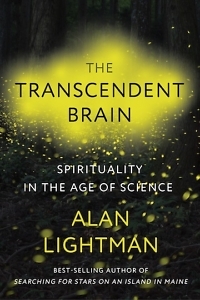 After brief tours through the history of thought on the soul and materialism, touching on the work of Moses Mendelssohn, Descartes, Leibniz, Lucretius, and Newton, among others, The Transcendent Brain gets down business, so to speak, with a chapter called “Neurons and I: The Emergence of Consciousness from the Material Brain.” The dry-sounding title doesn’t do justice to Lightman’s fascinating exploration of current ideas about how the brain creates consciousness and whether the human manifestation of it is unique. The journey, in typical Lightman fashion, includes discussion of relevant research (chiefly the work of neuroscientist Christof Koch), along with mention of dogs, termites, snowflakes, and Bill Clinton.
After brief tours through the history of thought on the soul and materialism, touching on the work of Moses Mendelssohn, Descartes, Leibniz, Lucretius, and Newton, among others, The Transcendent Brain gets down business, so to speak, with a chapter called “Neurons and I: The Emergence of Consciousness from the Material Brain.” The dry-sounding title doesn’t do justice to Lightman’s fascinating exploration of current ideas about how the brain creates consciousness and whether the human manifestation of it is unique. The journey, in typical Lightman fashion, includes discussion of relevant research (chiefly the work of neuroscientist Christof Koch), along with mention of dogs, termites, snowflakes, and Bill Clinton.
From there, the book moves on to consider how and why a capacity for transcendence might have arisen in the evolution of the human brain, with Lightman declaring his own preference for the theory that spirituality is a “spandrel,” a term in evolutionary biology for a trait that is not adaptive in itself but a by-product of adaptive traits. He ultimately makes a compelling case for the idea that spiritual experiences are “as natural as hunger or love or desire, given a brain of sufficient complexity,” and that all our mystical visions are explainable in purely material terms.
But persuading skeptical readers is not Lightman’s primary purpose here. One of the joys of reading his work, especially in this contentious era, is that he is temperamentally wary of certainty and seems to have no interest in winning any debate; rather, he wants to bring us along with him to the outer edge of thought, a mysterious realm he finds endlessly alluring, where, as he puts it, we “can stand on the precipice between the known and the unknown, without fear, without anxiety, but instead with awe and wonder at this strange and beautiful cosmos we find ourselves in.”
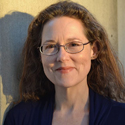
Maria Browning is a fifth-generation Tennessean who grew up in Erin and Nashville. Her work has appeared in Guernica, The Los Angeles Review of Books, Literary Hub, and The New York Times. She’s the editor of Chapter 16.
